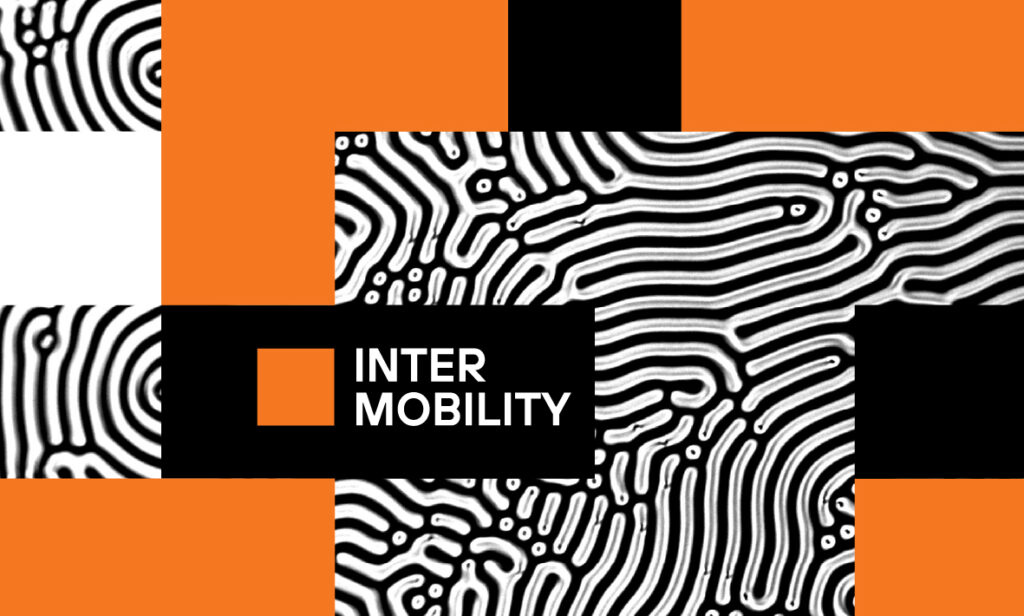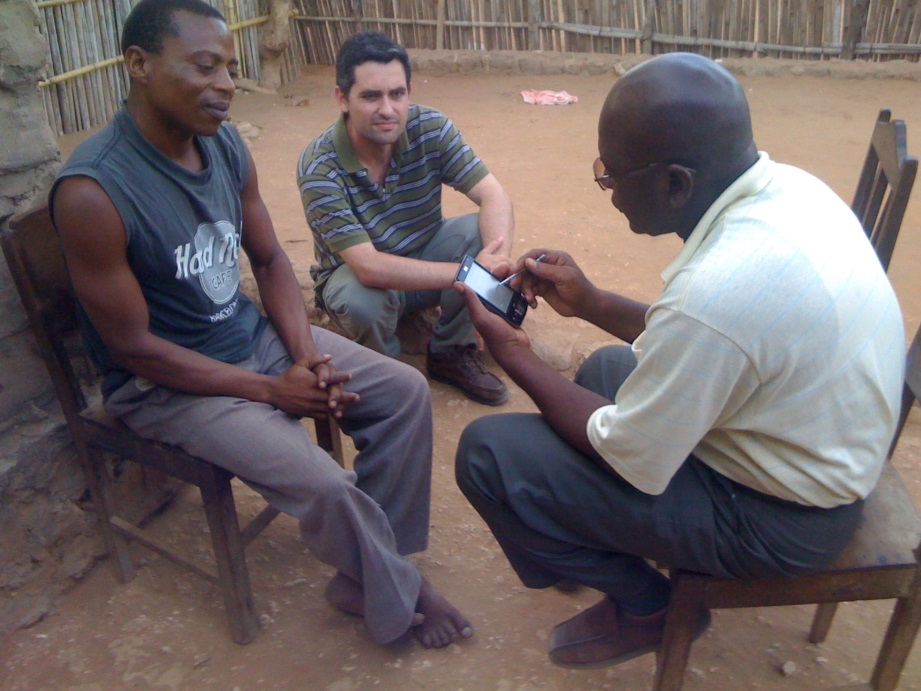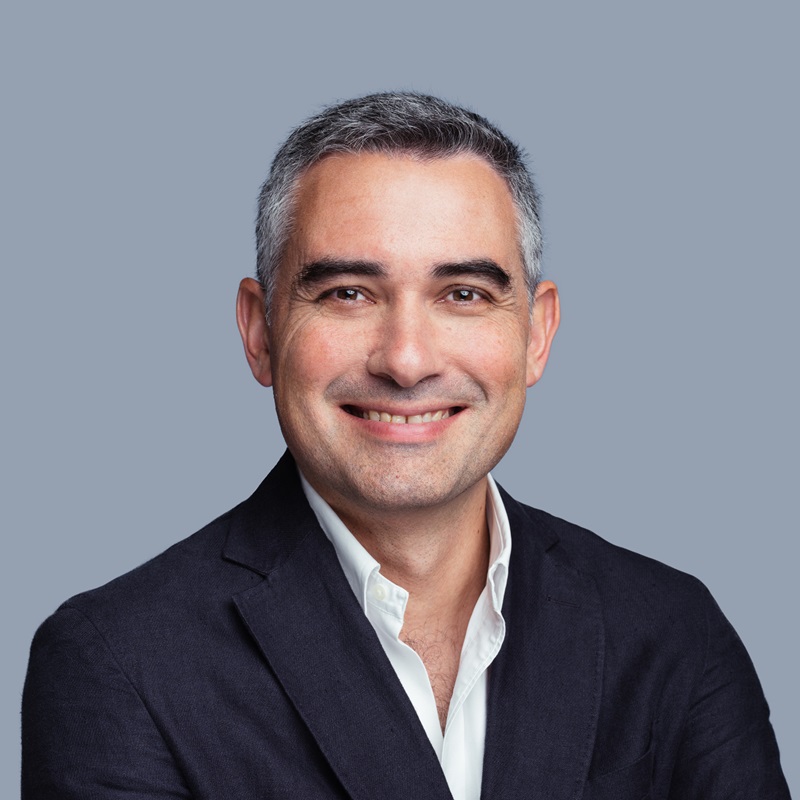BACK TO RESEARCH WITH IMPACT: FNR HIGHLIGHTS
When economist Pedro Vicente arrived in Luxembourg on an FNR INTER Mobility grant, he wasn’t looking for a change of scenery. He came with an idea: to connect practical development research with Luxembourg’s concrete work in international cooperation.

Pedro Vicente, Professor at Nova School of Business and Economics and Scientific Director of NOVAFRICA[1], has spent the last two decades immersed in the realities of African development. His projects, often grounded in randomised controlled trials (RCTs), seek to answer practical questions: What improves education outcomes? How do health interventions work in practice? What kinds of support help people respond to climate pressures? In Luxembourg, Pedro Vicente found more than just institutional partners. He found shared priorities.
“The FNR INTER Mobility Grant is a fantastic opportunity to deepen collaboration not only with LISER and the University of Luxembourg, but also with key policy actors like the Ministry of Foreign Affairs and LuxDev,” he explains. “It provided the means to reach out to all of them and start meaningful research in Cape Verde and Senegal, which are priority countries for Luxembourg’s aid agency.“
Paving the way for new directions
The research being set up is not quick or simple. It involves lengthy institutional agreements, tailored data collection, and cooperation with local partners. Yet it is exactly this kind of work that brings scientific depth to development policy. One of the flagship initiatives underway is a study on Technical and Vocational Education and Training (TVET) in Cape Verde, developed together with LISER researchers Frédéric Docquier and Michel Tenikue. “We are particularly interested in linking TVET to employers in both Cape Verde and Europe, especially through legal migration pathways to countries like Luxembourg and Portugal,” Vicente says. “Tourism is one example of a sector where this connection could make a real difference.“
For LISER, this collaboration opens new directions. Known for its strengths in migration and labour economics, the institute is now turning more attention to development and Africa-focused research. Vicente’s experience in Mozambique, Guinea-Bissau, Angola and elsewhere complements this shift. His background in field trials gives LISER a head start as it moves from describing phenomena to testing interventions.“International collaboration is essential for producing high-quality research,” Vicente reflects. “NOVAFRICA is used to working with both researchers and local policymakers in African countries, and we are trying to bring some of this knowledge to LISER.”
Engaging with local research community
During his stay, Pedro Vicente engaged closely with the Luxembourg research community. He contributed to the Doctoral Lecture Series on Cross-Border Labour Mobility, participated in internal seminars, and helped launch LISER’s Policy Lab in March 2025. He also presented a policy brief on his work in northern Mozambique, focusing on preventing radicalisation, an issue with parallels in the Sahel region, where Luxembourg has development interests.
“Our research in Mozambique involved several RCTs designed to prevent violence and radicalisation among youth. The lessons learned are relevant not only locally but also in Sahelian contexts,” he says. These findings have already been shared with Luxembourg’s Ministry of Foreign Affairs and LuxDev.
What emerges from Vicente’s time in Luxembourg is not only a shared research agenda but also a model of knowledge exchange. “We are committed to hosting LISER researchers and PhD students in Lisbon, and we hope to apply jointly to future funding calls, including FNR’s BRIDGES programme,” he notes.


The end is just the beginning
Beyond individual projects, the collaboration signals a broader opportunity. Luxembourg, while small, has a reputation for being a consistent and committed development partner. By more systematically linking its aid efforts with evidence-based research, the country could enhance both policy outcomes and academic visibility. “Scientific institutions are seen as independent and objective,” Vicente adds. “They can give additional credibility to Luxembourg’s policy work abroad.”
Vicente’s research also addresses other global challenges. In Mozambique, he has worked on urban adaptation to climate change in flood-prone areas. In Guinea-Bissau, he investigates how community health initiatives and traditional medicine can improve maternal and child health. And across several countries, he explores how property rights and mobile technologies affect economic mobility. “Urbanisation, mobile money, land tenure—these are key to moving away from subsistence agriculture,” he explains.
As his sabbatical comes to an end, the long-term partnership between NOVAFRICA and LISER is just beginning. “This collaboration will last years. The projects themselves take time to implement and analyse. But the links we have built are strong and promising,” he says.
This isn’t a story of sudden breakthroughs. It’s a careful effort to connect people, research, and policy across institutions and countries. And it suggests that even modest, well-designed studies can improve how development aid works. One trial at a time.
“The FNR INTER Mobility Grant is a fantastic opportunity to deepen the research collaboration with LISER and the University of Luxembourg, as well as the official institutions in Luxembourg. I hoped to set up new research projects in collaboration with teams at LISER in the discipline of development economics. This type of research typically involves a wide network of collaborations not only among academics but also with development policy actors, such as aid institutions. Luxembourg’s Ministry of Foreign Affairs and its implementing aid institution, LuxDev, are important institutions in the international development policy arena. The FNR grant provided the means to reach out to all of them and set up meaningful research in Cape Verde and Senegal, which are countries of interest and action for Luxembourg’s aid agency. ”Pedro Vicente Professor at Nova School of Business and Economics and Scientific Director of NOVAFRICA
[1] NOVAFRICA is a knowledge center created by the Nova School of Business and Economics of the Universidade Nova de Lisboa in 2011. Its mission is to produce expertise that promotes business and economic development in Africa, in line with the Sustainable Development Goals (SDGs) defined by the United Nations. A particular focus is on Portuguese-speaking African countries, i.e., Angola, Cape Verde, Guinea-Bissau, Mozambique, and Sao Tome and Principe.
Related Funding Instruments
Related highlights
INTER Mobility “facilitated my proximity to conduct many interviews”
The FNR’s INTER Mobility programme enables researchers in Luxembourg to visit researchers abroad, and researchers abroad to visit researchers in…
Read more
Greenox inter pares
“The Natural State” is the official nickname of the state of Arkansas in the South Central United States. Fittingly, the…
Read more
When computers start understanding misunderstandings
Language is a means of communication, a tool, a toy. Language is objective, dreamy, misleading. Language is as diverse as…
Read more
INTER Mobility: From Luxembourg to UC Berkeley
The FNR’s INTER Mobility programme enables exchange between researchers based in Luxembourg and abroad. We speak to Dr Spero Paravantis…
Read more
INTER Mobility: A New Law for FinTECHs? – How to regulate financial innovation
Prof Dirk Andreas Zetzsche from the University of Luxembourg spent three months in Sydney analysing different solutions.
Read more
INTER Mobility: Lack of fibre makes intestinal bacteria aggressive
The globally acknowledged study led by Dr Mahesh Desai shows the potential effects of a lack of fibre on the…
Read more